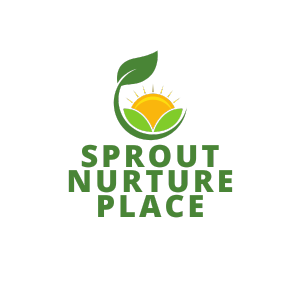Imagine biting into a juicy tomato that tastes like sunshine and happiness. That’s the magic of organic gardening. It’s not just about growing food; it’s about cultivating a lifestyle that’s healthier for both people and the planet. With organic gardening, you’re not just dodging pesticides and chemicals; you’re embracing a greener way of life that can make even Mother Nature smile.
But wait, there’s more! Organic gardening can save money, boost your mood, and even get you some serious bragging rights at the next neighborhood barbecue. Whether you’ve got a sprawling backyard or just a windowsill, the benefits are endless. Dive into the world of organic gardening and discover how it can transform your garden—and your life—one carrot at a time.
Benefits Of Organic Gardening
Organic gardening emphasizes natural methods to cultivate plants without synthetic chemicals. This approach promotes healthier soil, fosters biodiversity, and enhances ecosystem balance. Plants grown through organic methods often possess higher nutrient content and richer flavors, appealing to those who prioritize health and taste.
Sustainability stands as a core principle in organic gardening. Techniques such as crop rotation, composting, and natural pest control reduce environmental impact and conserve resources. These practices result in less reliance on chemical fertilizers and pesticides, cultivating a healthier ecosystem.
Cost savings also emerge with organic gardening. Growing one’s fruits and vegetables reduces grocery bills and encourages self-sufficiency. This method leads to fresher produce, cutting down on food waste and packaging associated with store-bought items.
Mental health benefits manifest for many who engage in organic gardening. The act of nurturing plants fosters a connection to nature, promoting relaxation and reducing stress. Studies reveal that spending time outdoors and tending to a garden can enhance overall well-being.
Socially, organic gardening encourages community engagement. Shared gardening spaces allow individuals to exchange ideas, seeds, and gardening tips, building connections. Communities that embrace this practice often create networks focused on sustainability and healthy living.
Overall, organic gardening presents a transformative experience, enriching lives through health, sustainability, and social interaction. It’s an inviting option for anyone interested in cultivating their green space responsibly.
Environmental Benefits of Organic Gardening

Organic gardening offers significant environmental benefits that contribute to healthier ecosystems. It fosters sustainable practices that help restore and maintain the environment.
Soil Health Improvements
Healthy soil serves as the foundation of successful organic gardening. Microorganisms and beneficial insects thrive in organic systems, enhancing soil fertility and structure. Composting and crop rotation enrich the soil, promoting nutrient availability. Organic gardeners avoid synthetic fertilizers, preventing soil depletion and chemical runoff. As a result, improved soil health leads to stronger plants resistant to disease and pests. The integration of natural amendments also increases water retention, reducing irrigation needs.
Biodiversity Enhancement
Organic gardening encourages a diverse range of plants and wildlife. Diverse plant varieties attract various beneficial insects, including pollinators and natural pest predators. Gardens that embrace polyculture systems often create habitats for numerous species, from birds to beneficial fungi. This holistic approach supports ecosystem resilience, as increased biodiversity mitigates the effects of pests and diseases. Organic practices prevent chemical contamination, aligning gardening efforts with the principles of conservation and restoration. Ultimately, thriving biodiversity fosters ecological balance while enhancing garden productivity.
Health Benefits of Organic Gardening
Organic gardening promotes health through superior nutrition and reduced harmful exposure. Many gardeners discover significant benefits from producing their own chemical-free food.
Nutritional Advantages
Plants cultivated organically often contain higher levels of vitamins and minerals. Research indicates that organic vegetables can offer up to 20-30% more antioxidants compared to conventionally grown produce. Increased nutrient density enhances health by supporting the immune system and improving overall well-being. Additionally, richer flavors in organic crops encourage healthier eating habits, making meals more enjoyable. With the potential for a personalized selection of crops, gardeners can tailor their harvest to meet specific nutritional needs.
Reduced Chemical Exposure
Organic gardening ensures minimal exposure to synthetic pesticides and fertilizers. A study from the American Journal of Clinical Nutrition highlights the risks associated with chemical residues found in conventionally grown food. By avoiding these substances, organic gardeners significantly reduce the risk of health issues, including allergies and chronic illnesses. Planting without harmful chemicals fosters a cleaner environment for families, particularly children, who are more vulnerable to chemical exposure. Health benefits expand beyond the garden, promoting a safer food supply and contributing to overall community well-being.
Economic Benefits of Organic Gardening
Organic gardening presents various economic advantages, particularly through cost savings and market demand.
Cost-Effectiveness
Cost-effectiveness emerges as a significant factor in organic gardening. Home gardeners effectively reduce grocery bills by growing their own produce. Decreased reliance on store-bought fruits and vegetables minimizes expenses associated with transportation and packaging. Investments in organic seeds and soil amendments lead to healthier plants and greater yields over time. Organic compost and natural pest controls further enhance sustainability while lowering costs. Community gardens also provide shared resources, contributing to lower per capita spending on gardening supplies. Cost savings accumulate in various ways, making organic gardening a smart financial choice for many.
Market Demand for Organic Produce
Market demand for organic produce continues to grow steadily. Consumers increasingly prioritize health and nutrition, driving a rise in organic food sales. Reports reveal that organic food sales reached approximately $62 billion in 2021. Retailers and farmers respond by expanding availability, meeting customer preferences for fresh, chemical-free options. This growing demand empowers organic gardeners to sell surplus produce at local markets or community-supported agriculture programs. Profit margins often exceed those of conventional produce due to the perceived higher value of organic items. Increased prices for organic fruits and vegetables provide organic gardeners with lucrative opportunities, stimulating local economies and healthier choices.
Community and Social Benefits
Organic gardening creates significant community and social advantages, fostering connections among individuals with shared interests. These benefits extend beyond personal enjoyment, positively impacting neighborhoods.
Community Engagement
Community gardens serve as vital spaces for social interaction. Local residents participate in gardening activities, promoting teamwork and collaboration. Shared gardening environments allow for the exchange of knowledge, resources, and experiences, enhancing the sense of belonging. Events like workshops and harvest celebrations invite participation, enriching community life and encouraging sustainable practices. Through these initiatives, individuals build friendships and create supportive networks, united by a commitment to organic gardening principles.
Strengthening Local Economies
Local economies benefit from organic gardening in various ways. Home gardeners contribute to market demand by growing produce, which addresses the increasing consumer preference for organic options. Selling surplus at farmers’ markets enables individuals to generate income while promoting local agriculture. The organic sector reached approximately $62 billion in 2021, reflecting a growing market that stimulates local job creation and economic activity. Supporting local businesses and organic farms enhances community resilience, ensuring healthier food access and improved nutrition for residents.
Beyond Growing Food
Organic gardening offers a multitude of benefits that extend beyond just growing food. It nurtures a healthier lifestyle while promoting sustainability and environmental stewardship. By engaging in organic practices, individuals can enjoy fresh produce rich in nutrients while reducing their exposure to harmful chemicals.
The social connections formed through community gardens enhance local engagement and foster a sense of belonging. Additionally, the economic advantages of growing one’s own food can lead to significant savings and even income opportunities.
Ultimately, embracing organic gardening is not just about cultivating plants; it’s about cultivating a healthier, more connected, and sustainable future.





